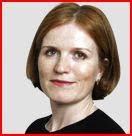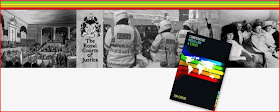
The International Federation of Journalists is calling for a global solidarity campaign in support of the journalists massacred in the Philippines last Monday.
It is now thought that as many as 30 journalists were killed - which the IFJ says is "the world’s biggest single atrocity against journalists".
The IFJ is sending an international mission to Manila from December 7 to 10. The mission, co-ordinated by the IFJ Asia office, will support the National Union of Journalists of the Philippines, provide solidarity to journalists and their families, and lobby the government "that this is an outrage that they will not be allowed to forget".
The NUJP has asked the IFJ to request all colleagues, affiliates - which include the NUJ, partners and interested parties to join a global solidarity campaign. The first phase of the campaign will culminate on December 9, 2009 (ahead of International Human Rights Day on December 10).
A joint press conference will be held by the NUJP and the IFJ-led international mission to release the initial findings of NUJP investigations into the massacre.
The IFJ is also calling on affiliates and partners to meet Philippine Ambassadors and Consulates in their home countries to demand "that the killers of our colleagues are brought to justice".














































